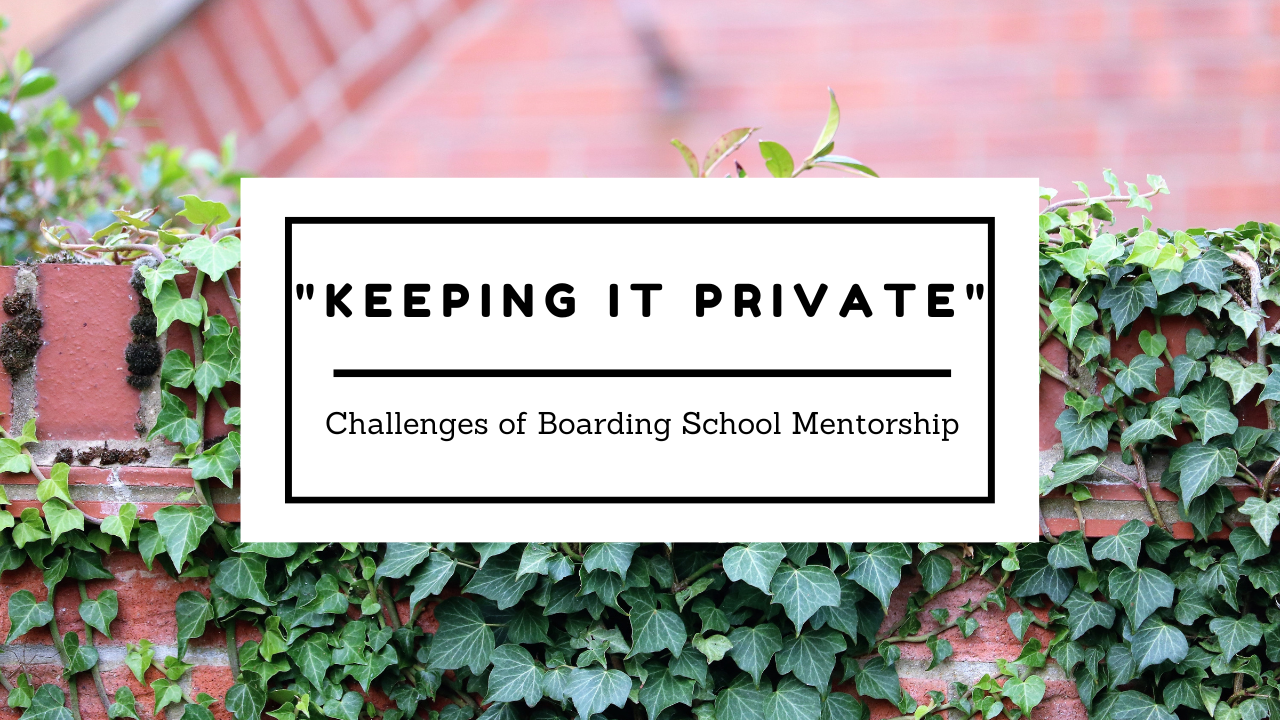 Snapshot: At an independent boarding school, a development officer who also serves as a mentor in the dorm must balance competing values as she decides what to do after witnessing her mentee engaged in sexual activity with a classmate. School policy dictates that such behavior be reported immediately, but the officer worries that doing so will harm the student, who has not come out to the broader school community—or her parents, whose large donations are important to the school’s financial stability. How can the officer honor the mentor/mentee relationship while still upholding the rules and values of the school she has worked so hard to support?
Snapshot: At an independent boarding school, a development officer who also serves as a mentor in the dorm must balance competing values as she decides what to do after witnessing her mentee engaged in sexual activity with a classmate. School policy dictates that such behavior be reported immediately, but the officer worries that doing so will harm the student, who has not come out to the broader school community—or her parents, whose large donations are important to the school’s financial stability. How can the officer honor the mentor/mentee relationship while still upholding the rules and values of the school she has worked so hard to support?
Case Description: Private and independent boarding schools in the United States are unique educational environments. Students live on campus along with their teachers, mentors, and administrators. As private institutions, boarding schools do not receive federal funding, and thus rely heavily on donations from parents and alumni. This can place educators at private boarding schools in challenging positions as they navigate the personal, professional, and financial commitments of their role.
This fictional case takes place at the Sibley School, a coeducational, private boarding high school, with a mission to spark a passion for learning and civic engagement. Development officer and peer mentor Jennifer Montrose must balance competing values as she decides what to do after witnessing her mentee, Emily, engaged in sexual activity with a classmate. Emily has recently come out to Jennifer, but not her parents, whose roles as alumni and financial donors give them considerable influence at the school. As a school officer, Jennifer feels beholden to the school policies, but worries about breaking her trust with Emily by outting her to her parents, who may not be supportive of Emily’s identity. Furthermore, the school climate isn’t fully supportive of LGBTQ+ students. How can Jennifer honor her relationship with Emily while still upholding the rules and values of the school Jennifer has worked so hard to support?
This case poses dilemmas faced by many who feel both the pull of a personal relationship and the duty of a professional. How should educators at private schools balance their commitments to their students with their commitments to the institution, especially when that institution is so dependent on external funding? Is the well-being of one student worth jeopardizing the future sustainability of an entire program? These dilemmas become more individualized when the educator’s personal code of ethics conflicts with the code their school has set. Which values should one prioritize when faced with disciplinary action: the trust and relationship with a student or the consistency and accountability of a school policy? What is the right step to take when one’s own career may be threatened by this tension?
The case also raises questions about the relative responsibilities educators have towards their students compared to the parents of the students. When does a child’s safety outweigh a parent’s right to know about their child? At what point does respecting the identity and choices of a student violate the parents’ rights to make informed decisions regarding their child’s education?
Additional Resources:
- Learn more about the funding structure of independent schools.
- This blog post shares the reflections of a student educated at a private school on the issues surrounding both public and private school institutions.
- This report describes many of the challenges faced by LGBTQ+ youth in schools
- This article provides a brief overview of the ethical and legal considerations at play when teachers consider whether to tell parents when a student has come out to their teacher.

